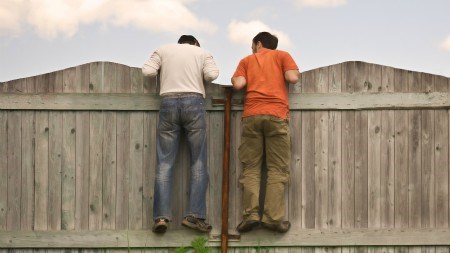A neighbour’s tree causing damage to your property can be a source of conflict. What are your rights?
Good fences, they say, make good neighbours - although with some neighbours, the higher the better. But what rights do you have if your fences aren’t high enough to keep a neighbour’s trees out of your property or roof?
What can you do - or can’t you do - with overhanging branches, and what can you do when trees that grow on your neighbours’ land cause a nuisance on yours? And can you even stop your neighbour from planting a tree?
Basically, said Cor van Deventer, a director at Greyvenstein’s Attorneys in Port Elizabeth, your property rights begin and end at the boundaries of your property - so you’d be well within the law if you cut the offending branches down. But, as with everything, it’s a little more complicated than that.
“If you don’t want to live with overhanging branches from your neighbour’s trees, you should begin by asking him or her to cut them away, and to remove the cuttings from your side of the fence,” he said.
“If he or she refuses to do this, you can cut the branches back to the property line - but you’re not allowed to keep the cuttings unless your neighbour refuses to take them. In that case you’d be within your rights to dispose of them, and to recover the reasonable costs of disposal from the neighbour.
“But if none of this works, you could apply for an interdict to compel the neighbour to remove the branches.”
Be Reasonable
You may not want to cut down an overhanging branch, though: what if the trees are causing a nuisance by, say, shedding their leaves and blocking up your gutters or choking your automatic pool cleaner?
“When a case like that arises, the court will always apply a test of objective reasonableness - that is to say, it’ll look at the situation from the point of view of a third person (an objective party),” said Cor.
He cited the case of Vogel vs. Crewe and another (2003(4) SA 509(T) - unfortunately the ruling appears not to have been posted on line) in which Vogel believed that Crewe’s trees - which were growing within two metres of the boundary - were causing various problems on his (Vogel’s) property: the leaves were blocking his gutters and swimming pool, the trees were affecting his sewage system and damaging his parking area, and they were also damaging the concrete wall between the properties.
“Based on a test of objective reasonableness - which included considering the trouble the trees were causing for the neighbour versus the benefits of protecting them for the visual pleasure they provide, for their shade, and even for the oxygen they produce - the judge found that Crewe couldn’t be forced to remove the trees,” said Cor.
He said, too, that the case was significant for a number of reasons: it took the environment into consideration (“And given the problems of climate change, everyone ought to think twice before cutting down a tree”); and it addressed the question of what is and isn’t reasonable.
“The judge made it clear that you have to make allowances for the fact that properties are getting smaller - and in Vogel and Crewe’s case, the pleasure that the tree provided would therefore necessarily require a certain amount of effort and tolerance,” said Cor.
“Damage of the kind that Vogel was claiming can be prevented by normal maintenance - by cleaning the gutters on a regular basis, for example.”
Restrictions
Cor said though, that, just like you, your neighbour has a right to “the enjoyment of his or her own property,” which includes planting trees and erecting buildings (as long as they comply with the National Building Regulations and the by-laws of your local municipality) - even if they obstruct your view or block your sunlight.
“But this right is also restricted to a certain extent: if you can prove that your neighbour has planted a tree or built a building deliberately to cause a nuisance to you, you may be able to claim damages, or even obtain an interdict for the removal of the building or the trees.”
Ultimately though, said Cor, you can usually prevent a host of problems through good neighbourliness.
“If you cultivate cordial relations with the people around you, you’ll probably be able to find equitable solutions by working together.”





